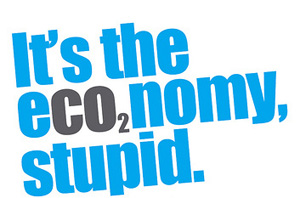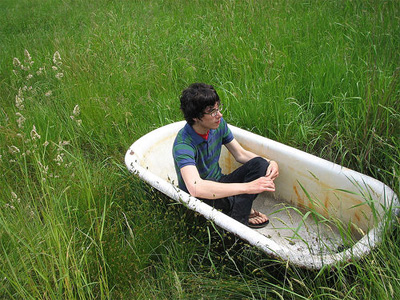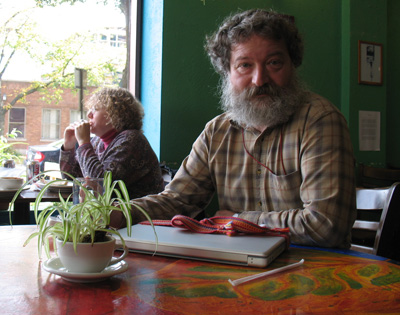Leaders call for climate change leadership
November 12, 2008 at 5:36 am | Posted in Climate and politics, Uncategorized | Leave a commentTags: climate change, G-20 summit, international leadership, Philippines climate change summit
Four world leaders urged representatives to take action on climate change at the recent G-20 summit convened to discuss the global financial crisis. As reported by The Times of India, the leaders made their plea in a joint op-ed published in The International Herald Tribune.
“The global financial crisis is most immediate; the more existential is climate change. The urgency of the first is no excuse for neglecting the second. To the contrary, it is an opportunity to kill two birds with one stone,” reads the op-ed written by UN Secretary-General Ban Ki-moon, Indonesian President Susilo Bambang Yudhoyono, Polish Prime Minister Donald Tusk and Danish Prime Minister Anders Fogh Rasmussen.
Continue Reading Leaders call for climate change leadership…
Adding climate change into the economic forecasts
November 3, 2008 at 1:36 am | Posted in Climate and economy | Leave a commentTags: Ban Ki-Moon, climate change, economy, Nicholas Stern, Stern Report, The Climate Group
Once again it’s been a week of numbers. The Dow Jones stock index rallied 11.3 percent over the last week, along with other stock measures around the world. The Federal Reserve and the Bank of Japan cut interest rates to grease lending and spending. Consumer spending declined in the U.S. for the first time in 17 years, and a bailout’s now being considered for Detroit’s Big Three automakers.
Despite – and perhaps because of – the maelstrom of mostly dark economic news over the last few weeks, there is now more and more talk about how dealing with climate change should figure into economic planning.
On Monday former World Bank economist Nicholas Stern issued a warning that ignoring the risks posed by climate change could result in far greater consequences than ignoring risks in the financial system.
Stern is famous for a 700-page economic report he released in 2006, which claimed inaction on climate change could result in disasters on the scale of the Great Depression or World Wars I and II.
Continue Reading Adding climate change into the economic forecasts…
Supercomputer launched to study sea level rise
November 2, 2008 at 5:48 am | Posted in Climate science research | Leave a commentTags: Blue Ice, climate change, sea level rise, supercomputer, Swansea University
If temperatures increase and ice sheets continue to melt, it’s certain sea level will rise. What’s less certain is by how much and how much fast.
Answering those number questions will take more study of the ice sheets that sit atop Greenland and the Antarctic.
And lots of math.
A new supercomputer being deployed in Wales is about to be set to work running the many numbers involved.
The computer – called Blue Ice – will be used to study the behavior of melting polar ice sheets.
Continue Reading Supercomputer launched to study sea level rise…
Understanding bathtubs and climate change
October 31, 2008 at 4:57 pm | Posted in Climate understanding | Leave a commentTags: climate change, Climate understanding, john d. sterman, risk communication, science, stocks and flows
It’s been common to blame the media and global-warming “deniers” for the public’s confusion about climate change.
The media, it has been said, feel they must always represent opposite sides of opinion. It’s a laudable goal, but not if it results in a distorted picture of scientific consensus.
I.e. two “experts” presented as equals, one whose statements represent a position a hypothetical 90 percent of the scientific community would agree with, and another whose statements represent the thoughts of a spare 5 percent.
In such cases, media efforts to produce balance lead to accidental misrepresentations. The “denialists,” on the other hand, are accused of deliberate distortions.
A new article in the most recent issue of Science, however, suggests there may be more to blame for public confusion about climate change than inaccurate portrayals of scientific opinion.
The article – “Risk Communication on Climate: Mental Models and Mass Balance” – links a failure to perceive the urgency of reducing carbon emissions to a poor understanding of stocks and flows.
Stocks and flows, as the author John D. Sterman points out, are all about the concept of accumulation, which is a common everyday experience:
“Our bathtubs accumulate the inflow of water through the faucet less the outflow through the drain, our bank accounts accumulate deposits less withdrawals … Yet, despite their ubiquity, research shows that people have difficulty relating into and out of a stock to the level of a stock …,” Sterman writes.
Sterman, along with colleague Booth Sweeney, tested a group of highly educated MIT students’ understanding of stocks and flows as it relates to climate change.
PBS Gets “Heat”
October 22, 2008 at 5:44 am | Posted in Climate and economy, Climate and politics, Climate solutions | 1 CommentTags: carbon capture, carbon sequestration, clean coal, climate change, electric car, heat, Martin Smith, PBS
This is so HOT.
And I almost missed it. But I took a minute to visit SolveClimate, an excellent blog about climate change, earlier tonight and found a notice about the new PBS documentary “HEAT” just in time to tune in.
The full program, which was produced by the Frontline producer Martin Smith, is available to watch for free on the PBS Web site.
“I have reported on the Cold War, the breakup of the Soviet Union, the rise of Al Qaeda, and the wars in Iraq and Afghanistan,” says Smith. “But nothing matches climate change in scope and severity.”
The report, split into four chapters, investigates how governments and major companies, such as Exxon Mobil and General Motors, are responding to the threat of climate change.
A biodiversity roundup
October 20, 2008 at 10:40 pm | Posted in Climate impacts, Climate science research | Leave a commentTags: biodiversity, climate change, equator prizes, macarthur foundation
Polar bears may be the most high profile of the animals facing a loss of habitat in a warming world, but it’s safe to say they’re hardly alone.
Just how many plant and animal species would be impacted by a changing climate, however, and in what way, are tough questions to answer.
In fact, both questions have been in the news a lot the last few weeks, so read on if you’d like a biodiversity news roundup.
Going green with an economy in the red
October 18, 2008 at 11:41 pm | Posted in Climate and economy | 2 CommentsTags: climate change, economic models, economy, risk assessments
With the markets in the midst of a crisis that many are comparing to the Great Depression, some environmentalists are starting to worry that the go-green wave may lose its momentum in the face of more pressing economic concerns.
From bloggers to scientists, a new speculative trend has now begun, with thinkers placing their bets on just what the economic downturn will mean for the environment. And in the truly free market of ideas, there are always a lot of answers to choose from:
It will be bad: how will we ever find the capital to invest in green technology after handing out $700 billion to the financial industry?
It will be good: people will start wasting less, recycling more, and using less energy.
It will be bad: commodity prices are plummeting and, without a pinch at the gas station, interest in alternative energy sources will flag.
It will be good: green jobs and the green industry will lead the rebirth of our economy.
It’s about as much of a yo-yo as the Dow Jones Industrial Average has been in the last few weeks. To get some perspective on the issue of how economic policies and the environment – specifically climate change – are related, I recently sat down with the University of Chicago geophysicist Raymond Pierrehumbert.
A geophysicist, you ask? It’s true, Pierrehumbert is not an economic expert, but he is a climatologist who is involved in a new effort to bring scientists and economists together to talk about climate, energy and economics at the University of Chicago.
Why acclimate?
October 6, 2008 at 6:58 pm | Posted in Why acclimate? | Leave a commentTags: acclimate, adaptation, climate change, global warming
There are lots of climate science blogs. But they’re mostly run by climate scientists. Or by people who have been following climate science for durations that are as close to glacial as the human lifespan allows.
For them, words like feedback, albedo and thermohaline need no translation. For many of the rest of us, they might as well be from a Martian lexicon.
Climate science and climate change, though, are very much about the earth – the only place in the universe fit for human dwelling, so far as we know. Yet, despite efforts by newspapers and other media sources to educate the public about what is known – or unknown – about climate change, confusion abounds.
Blog at WordPress.com.
Entries and comments feeds.



